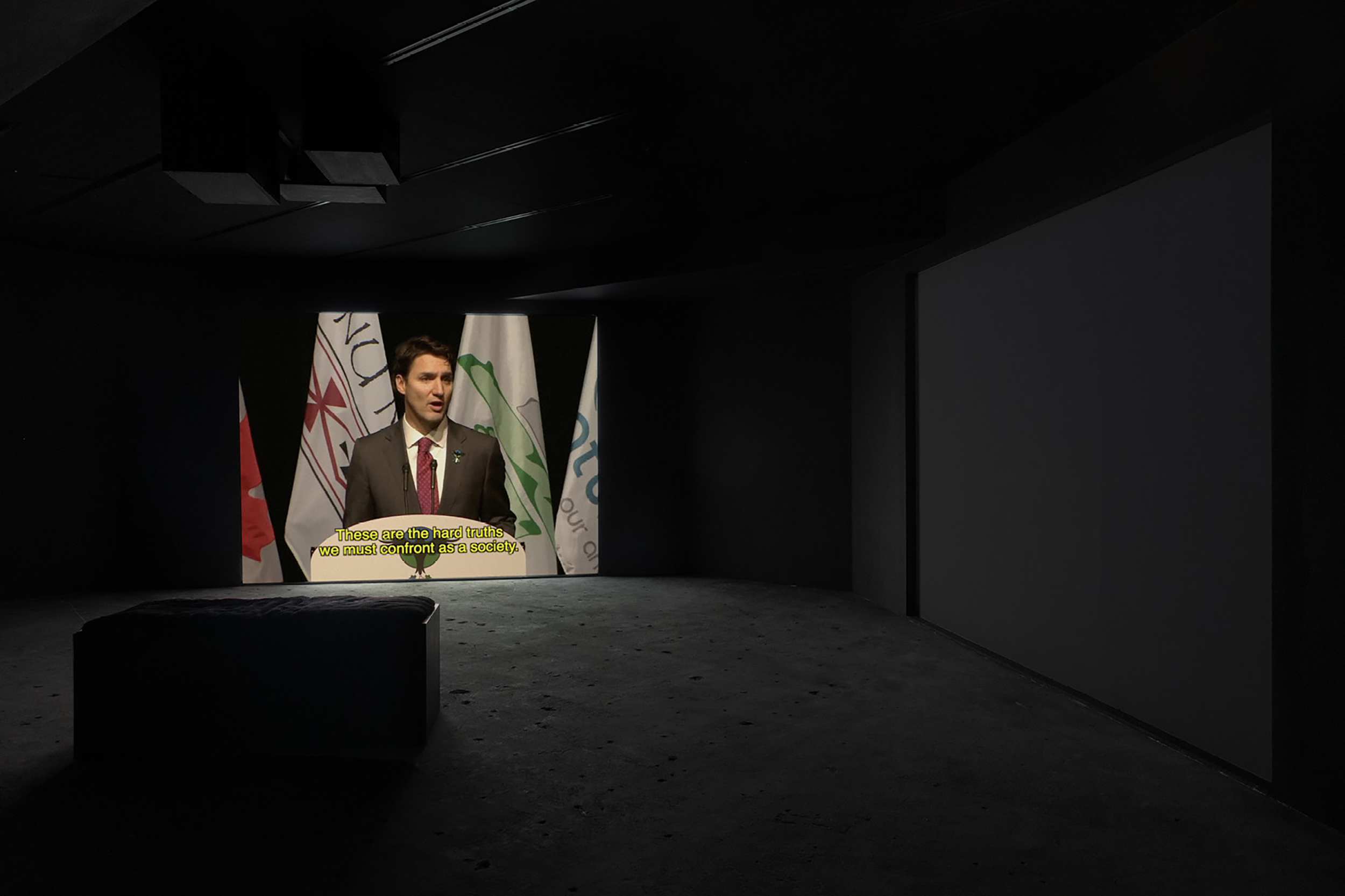Issue
Up Close: James T. Hong

The supercut to end all supercuts, James T. Hong’s seven-plus hour ongoing project Apologies (2012– ) is a chronological compilation of 161 instances in which world leaders have said they are deeply sorry, expressed their profound regrets, and on behalf of their governments repented for past deeds, decades of discrimination, and generational crimes. The spectacle is as tedious as it is revolting and enraging.







